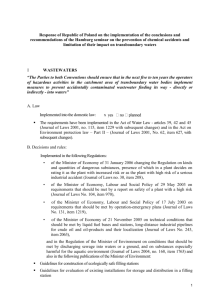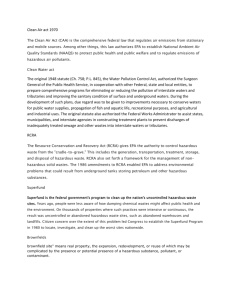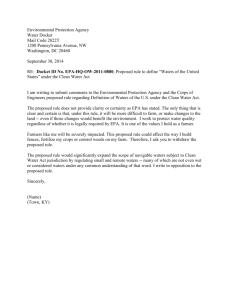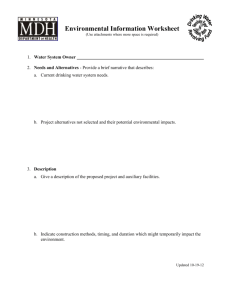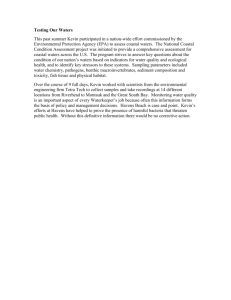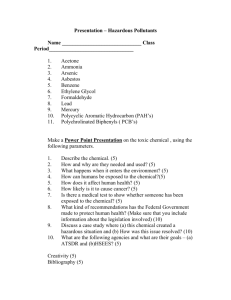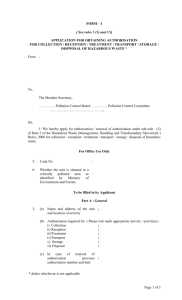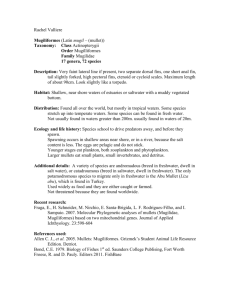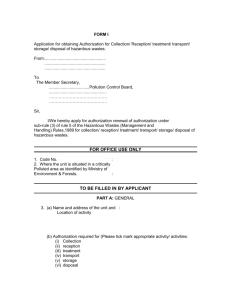REDUCTION OF THE HARMFUL IMPACT OF WASTE
advertisement
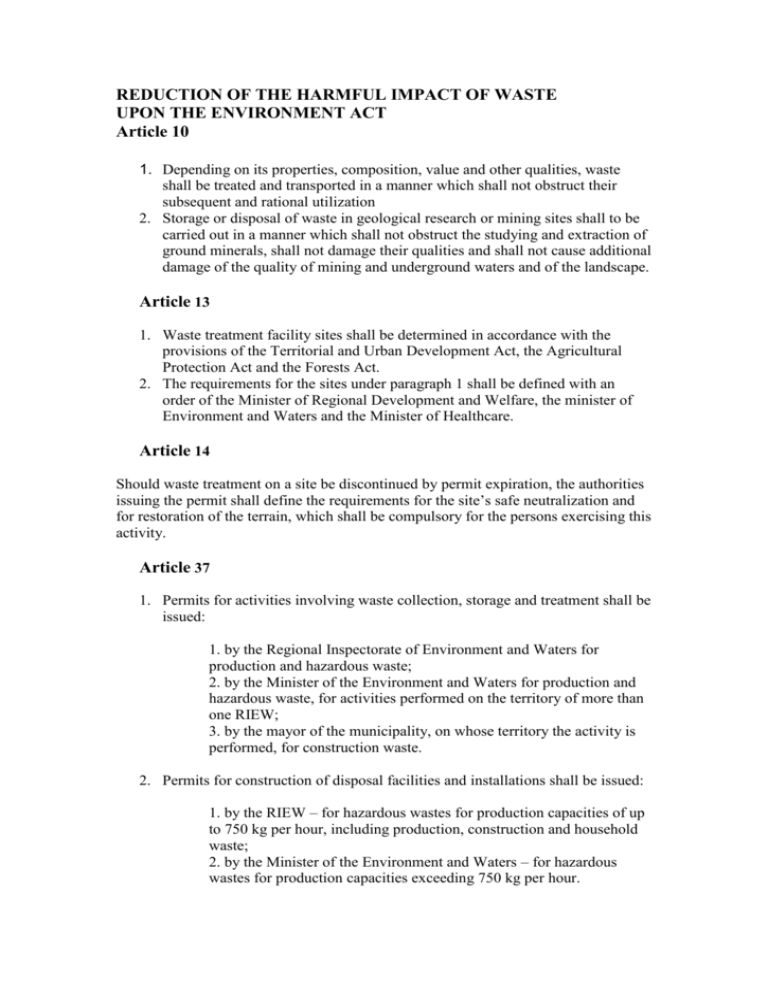
REDUCTION OF THE HARMFUL IMPACT OF WASTE UPON THE ENVIRONMENT ACT Article 10 1. Depending on its properties, composition, value and other qualities, waste shall be treated and transported in a manner which shall not obstruct their subsequent and rational utilization 2. Storage or disposal of waste in geological research or mining sites shall to be carried out in a manner which shall not obstruct the studying and extraction of ground minerals, shall not damage their qualities and shall not cause additional damage of the quality of mining and underground waters and of the landscape. Article 13 1. Waste treatment facility sites shall be determined in accordance with the provisions of the Territorial and Urban Development Act, the Agricultural Protection Act and the Forests Act. 2. The requirements for the sites under paragraph 1 shall be defined with an order of the Minister of Regional Development and Welfare, the minister of Environment and Waters and the Minister of Healthcare. Article 14 Should waste treatment on a site be discontinued by permit expiration, the authorities issuing the permit shall define the requirements for the site’s safe neutralization and for restoration of the terrain, which shall be compulsory for the persons exercising this activity. Article 37 1. Permits for activities involving waste collection, storage and treatment shall be issued: 1. by the Regional Inspectorate of Environment and Waters for production and hazardous waste; 2. by the Minister of the Environment and Waters for production and hazardous waste, for activities performed on the territory of more than one RIEW; 3. by the mayor of the municipality, on whose territory the activity is performed, for construction waste. 2. Permits for construction of disposal facilities and installations shall be issued: 1. by the RIEW – for hazardous wastes for production capacities of up to 750 kg per hour, including production, construction and household waste; 2. by the Minister of the Environment and Waters – for hazardous wastes for production capacities exceeding 750 kg per hour.
